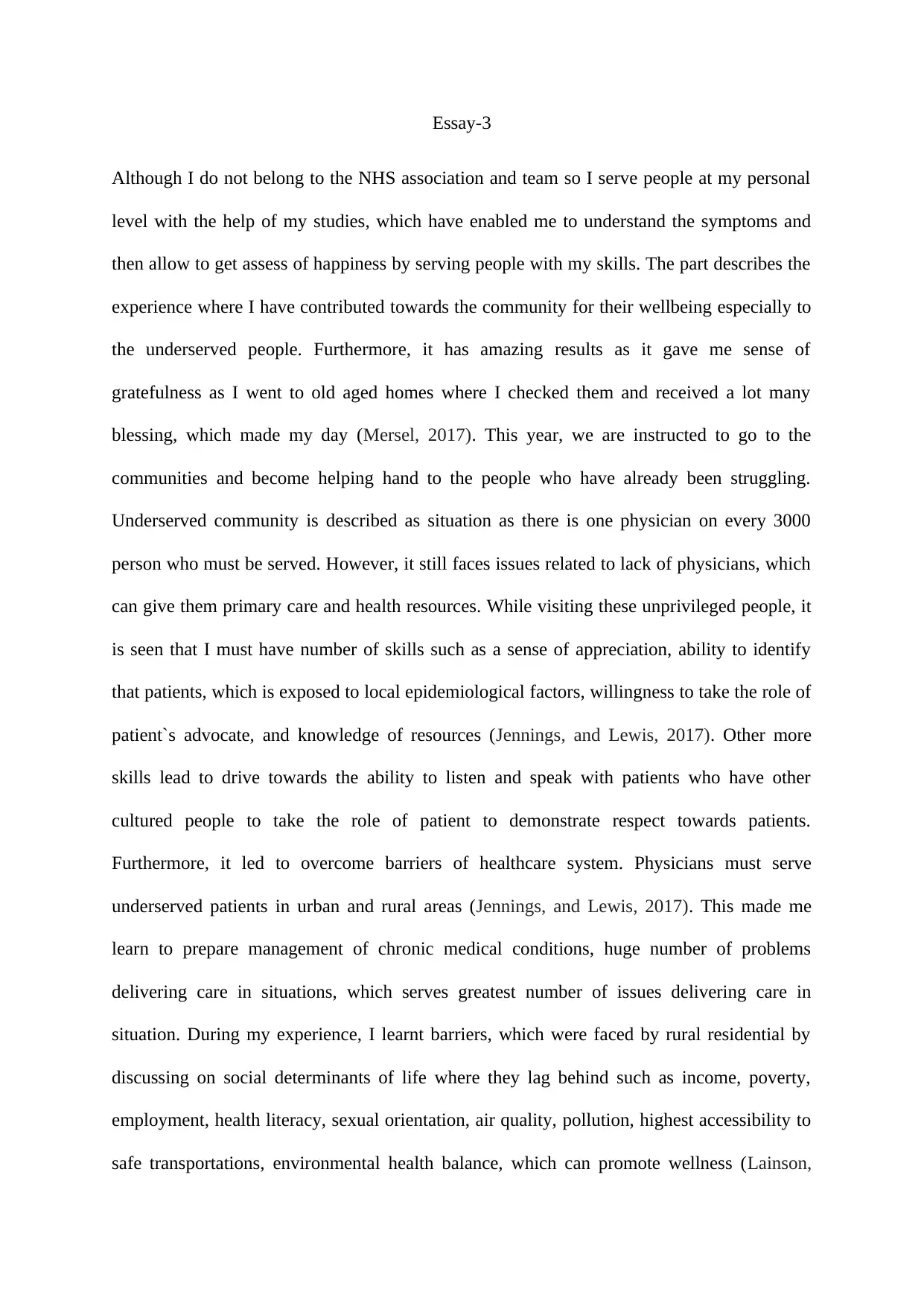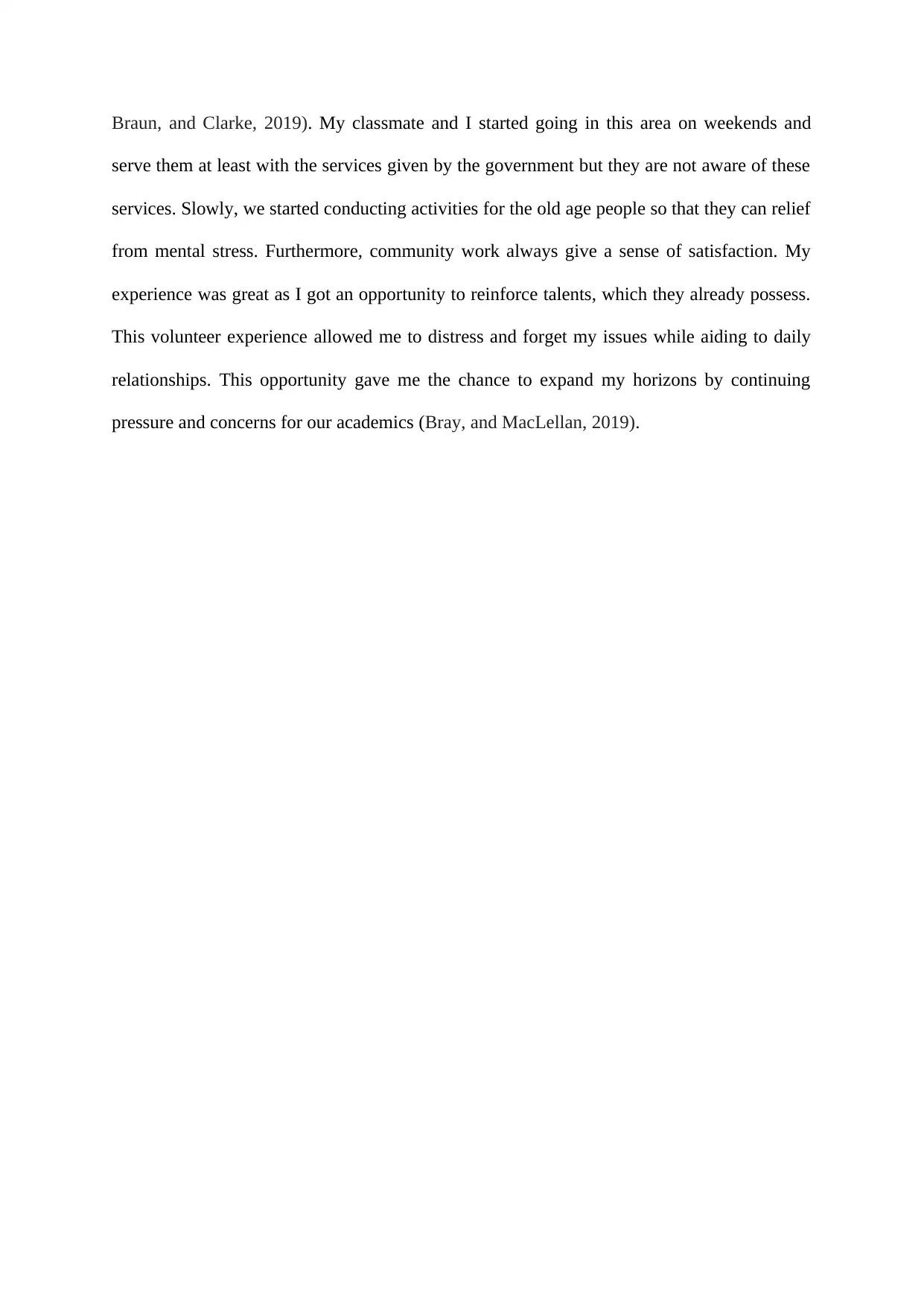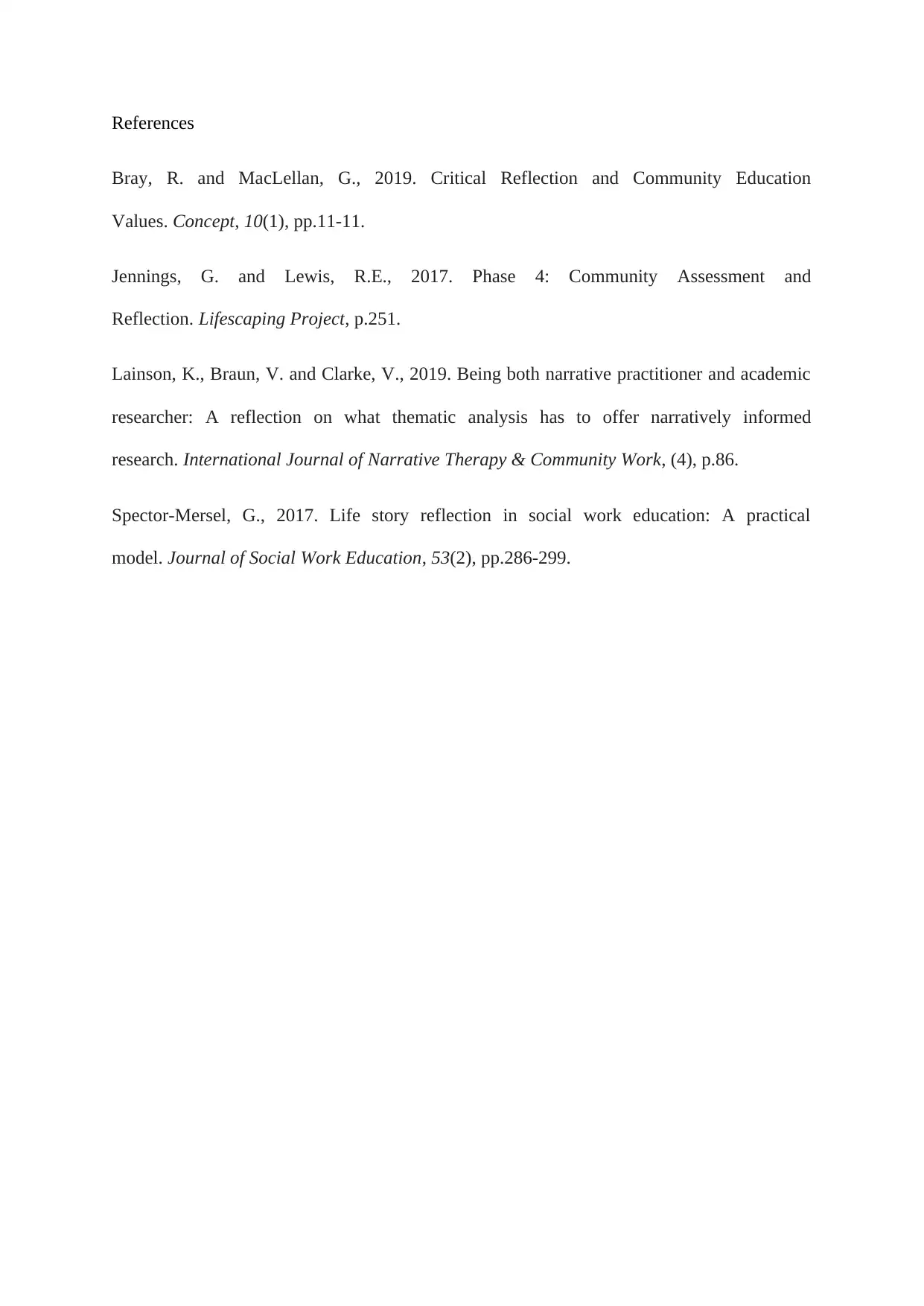Reflecting on Community Service and Healthcare Experiences
VerifiedAdded on 2022/09/16
|3
|658
|16
Essay
AI Summary
This essay provides a reflection on a student's community service experience within the healthcare sector, specifically focusing on serving underserved populations. The author details their involvement, highlighting the skills acquired, such as patient advocacy, understanding of local epidemiological factors, and the ability to navigate healthcare barriers. The essay discusses the challenges faced by rural residents, including issues related to income, employment, health literacy, and access to resources. The student describes their volunteer work, the activities conducted for the elderly, and the sense of satisfaction derived from contributing to the community. The experience allowed the author to expand their horizons and address their academic pressures while helping others.
1 out of 3










![[object Object]](/_next/static/media/star-bottom.7253800d.svg)